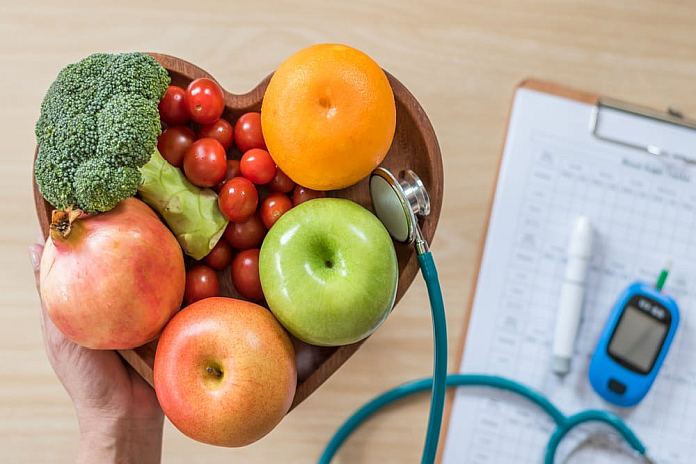By PYMNTS
The rapidly evolving telehealth category has a new business model. Fruit Street – a virtual one-stop-shop digital diabetes prevention program (DPP) – has partnered with vegetarian meal kit purveyor Purple Carrot to add a retail angle to its health advisory service.
“With more Americans practicing social distancing and staying home with their families during the COVID-19 pandemic, we wanted to increase access to healthy meals and nutrition advice through our telehealth platform and partnership with Purple Carrot,” said Lindsey Sacks, chief marketing officer of Fruit Street. “We have a team of more than 1,000 registered dietitians ready to help people eat healthy and stay active during this unprecedented shift in our daily routines.”
At its core, Fruit Street is a diabetes and weight loss “curriculum” and digital advisory service, supported by 300 physicians and more than one thousand dieticians. In fact, the $17 million raised by the company since its founding in 2014 has come strictly from those physicians, not VC funding. When the company started, its curriculum was offered only to physicians and insurance companies. Now, with the Purple Carrot partnership and the need presented by the COVID-19 crisis, a new bundled offering of its services and the Purple Carrot meal plans are available for $72 per week.
“Our digital diabetes prevention and weight loss curriculum is designed for those who may be at risk for type 2 diabetes,” noted Sacks. “Within our curriculum, we discuss how to eat well by incorporating more fruits and vegetables into daily life. We knew offering a plant-based meal delivery service that was simple, convenient and delicious would resonate with our participants. By offering access to plant-based meals alongside our digital diabetes prevention and weight loss program, we can increase the impact we’re having on the health of individuals. We decided to partner with Purple Carrot because it provides a holistic approach to both diabetes prevention and healthy living.”
On its own, Fruit Street uses registered dieticians (RDs) to teach its members to adopt a “food as medicine” mindset by focusing on the amount of carbs and sugars consumed each day. That team of RDs reviewed Purple Carrot meals and verified that they adhere to the dietary guidelines for type 2 diabetes. Participants use the Fruit Street app to take pictures of the Purple Carrot meals they have cooked, then submit them to the RDs and other members for feedback. The digital program also offers personal interactions with dieticians, a free wireless scale and a Fitbit Inspire Fitness Tracker to track progress.
Fruit Street also licenses software to physicians and educators. “Our SaaS model allows these licensed professionals to conduct HIPAA-compliant video consultations, instant message their participants and monitor their health and diet via wireless device integrations,” Sacks explained. “The mobile application can sync various wireless devices, including Fitbit, iHealth, BodyTrace, Apple Health and Withings. Our platform also includes a patient portal that patients can access 24/7, which allows providers to share education materials and upload lab results and other files. We support billing, scheduling, credit card processing, unlimited training and customer support.”
As a direct-to-consumer (DTC) brand, Fruit Street constantly conducts A/B testing across its website and advertising campaigns to improve the user experience. It also goes heavy on conversion mapping, in which it identifies the lower funnel user flow, then works up the funnel. “It’s important for us to map out the conversion user flow, knowing most of our marketing KPIs focus on bringing users to this place and keeping them there until purchase. If the lower funnel flow is off, it will derail the entire funnel,” said Sacks.
“Knowing we have access to our 300+ physician advisors and 1,000+ registered dietitians, we want to lean into their expertise and share their empirical knowledge with our audiences. This clinical content strategy promotes the high-quality, verified and trusted resources on which our brand truly does rest,” added Sacks. “And we choose messaging and imagery that’s relatable to our audience. We want our users to see themselves in our marketing materials and identify with those people. In our ads, you will see moments including a mom and daughter out food shopping together, a mom and dad playing in the grass with their kids, and ‘healthy foods’ that practically look like dessert.”
Fruit Street is currently delivering its digital diabetes prevention and weight loss program to large, self-insured employers and health plans that want to reduce their healthcare costs by preventing type 2 diabetes. The company’s revenue tripled from 2018 to 2019 and is on track to achieve the same growth in 2020 due to its contracts with employers, health plans, referring physicians and consumer adoption.





